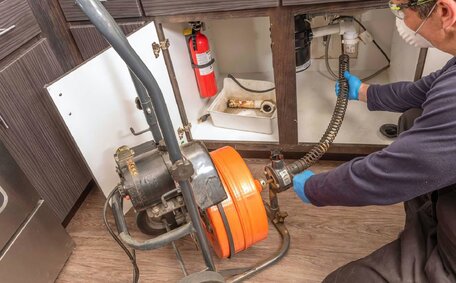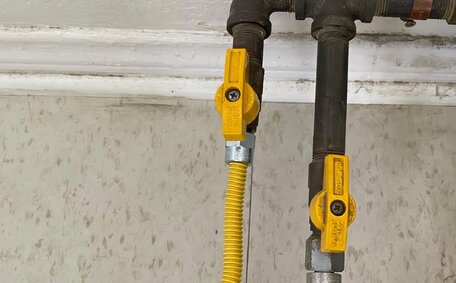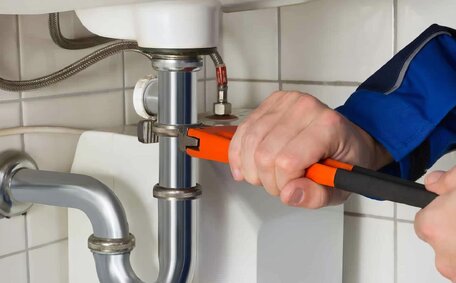Introduction to Emergency Plumbing Repairs in Rentals
Identifying who bears the costs for emergency repairs in rental properties can often be unclear. Both tenants and landlords have obligations when it comes to maintenance and repairs. In emergency situations especially, it’s important that all parties understand their duties.
This article clarifies who is liable for emergency plumbing repairs in rental settings. We’ll look at both tenant and landlord responsibilities including hot water system maintenance in the real estate context, examining what constitutes an emergency repair versus standard maintenance. We’ll also stress the importance of consulting your specific Residential Tenancy Agreement, as this document outlines the contractual duties for electricity and water plumbing upkeep.
A clear understanding of urgent plumbing repair guidelines can significantly reduce time, costs, and stress for both tenants and landlords. You’ll gain essential knowledge to maintain smooth operation of your rental’s plumbing.
Defining Landlord vs. Tenant Responsibilities
In general, Landlords are obliged to keep rental properties habitable, secure, and in line with plumbing standards. Landlords must arrange repairs and maintain plumbing to a high standard, even if they are not personally conducting the work.
The Residential Tenancies Act specifies that landlords must keep rentals in a state of repair that fits their age and character. This includes maintenance of the water heater, along with pipes, drains, and taps.
Tenants are responsible for basic upkeep and must report issues promptly during the tenancy. Addressing minor issues, including ones such as blocked toilets or replacing washers on leaking taps, falls under tenants’ duties. However, more complex plumbing problems are not the tenants responsibility, but should a tenant fails to report, any issue they must address should be done so with care.
Landlords ultimately carry the legal and financial obligation for urgent plumbing repairs. For non-emergency maintenance and repairs, tenants can be responsible for issues resulting from misuse. It’s also advisable to review the terms of your lease agreement.
Identifying and Resolving Urgent Plumbing Issues
Urgent or emergency plumbing issues require swift action to prevent further damage to your property or health hazards. Issues like damaged pipes, gas and electricity leaks, sewer overflows or serious water leakage are often classified as emergency repairs on their own merit.
Tenants should aim to secure the situation themselves, if possible, when facing a critical plumbing problem.
This may involve turning off water mains or shutting appliance valves. Tenants must promptly notify their landlord or property manager of the issue. Taking photos can help convey the severity of the issue to property management or the property owner.
Landlords must quickly employ qualified plumbers for emergency repairs, including services such as smoke alarm checks. Tenants should understand what they can do themselves regarding containment measures, but avoid complex responsible plumbing work. Property owners are responsible ensuring that the costs for urgent repairs are covered, particularly when health or wellbeing is at risk.
It is critical to resolve emergency plumbing issues promptly. Clear communication and understanding of repair responsibilities between tenant and landlord smooth the resolution process in plumbing matters. Consulting your tenancy agreement offers more clarity on specific responsibilities and duties.
Processes for Handling Emergency Repairs
Adhering to proper protocols is essential for quickly resolving plumbing emergencies in rentals and minimising additional damage. Grasping the recommended steps for managing urgent repairs is essential:
- As soon as the emergency is detected, tenants should secure the situation if safe to do so, such as turning off main water valves or shutting appliance connections.
- Take photos documenting damage and immediately notify the landlord or property manager providing details of the issue.
- The landlord must rapidly organise for qualified plumbers to attend, providing proper notice of intended entry as per residential tenancy legislation.
- Landlords, obliged to maintain the property, must start emergency repairs within 24-48 hours of being notified, depending on the severity of the issue.
- Once repairs commence, plumbers will work to diagnose issues, contain damage and restore proper function. Tenants need to be available to provide access when repairs are being undertaken.
- For completion of major repairs, landlords provide notices regarding reasonable anticipated timeframes to the tenant.
A mutual comprehension of responsibilities in emergency plumbing allows effective collaboration and quick resolution of critical issues.
Strategies to Avoid Plumbing Problems
Tenants and landlords can take preventive actions to reduce the frequency and impact of plumbing emergencies:
For Tenants
- Regularly flushing drains with a mix of hot water, baking soda, and vinegar can prevent buildup.
- To prevent blockages caused by improper disposal, avoid putting harsh chemicals, cooking oils or non-biodegradable objects down drains.
- Report all your minor leaks immediately rather than allowing them to worsen over time.
- Learn the location of your main water shut off valve to secure water in emergencies.
- Consider having renters insurance to assist with costs for damage from plumbing failures.
For Landlords
- For optimal plumbing health, schedule professional drain cleanings and checks biannually.
- Routine inspections of water heaters, taps, pipes, and drains are vital to maintain operational plumbing.
- Replace older galvanised piping prone to bursting.
- Before moving in, confirm adequate property and landlord insurance coverage for potential plumbing repairs.
- Landlords should ensure plumbing maintenance responsibilities are clearly stated in tenancy agreements.
Preventive plumbing maintenance enables faster responses and resolution for urgent issues. Early intervention also mitigates the risk of significant property damage and costly repairs in the future.
When to Call A Professional Plumber
Engaging a licenced, professional plumber is necessary in various situations within the rental property context:
- For intricate plumbing problems that exceed simple fixes - including severe leaks, a blocked toilet, sewer complications, gas leaks, or extensive system failures.
- If DIY efforts to manage or fix the emergency are ineffective or if the issue escalates.
- When unsure if plumbing problems fall under landlord or tenant obligations.
- If tenants cause accidental damage requiring professional repairs.
- Consult a professional plumber for advice on maintaining plumbing and preventing future problems.
At Abbotsbury Plumbing, Our skilled technicians are ready 24/7, ensuring no waiting time for rental property emergencies. We can:
- Rapidly contain and diagnose issues
- Safely conduct complex repairs
- Advise on cost and claim obligations
- Provide maintenance solutions to avoid future problems
- Liaise directly with landlords, property managers and tenants
With extensive rental property expertise, we strive to deliver prompt, high-quality repairs ensuring everything is in reasonable working order for your rental home or investment property.
Referencing the Residential Tenancy Agreement
It’s important to consult the Residential Tenancy Agreement, as it outlines the contractual rights and responsibilities of tenants and landlords regarding plumbing and repairs in a rental property.
It’s crucial for both parties to fully understand their obligations under the agreement. Clauses may specify timeframes, notice periods, the amount rent can be adjusted for major repairs, approved contractors, payment procedures, and other terms for emergency and general plumbing maintenance.
Key things tenants should check in their agreement include:
- Who is responsible for different types of plumbing repairs?
- What constitutes an emergency repair?
- How quickly must repairs done to address the issue?
- Can tenants arrange repairs independently if the landlord does not act swiftly?
- Are specific plumbers approved or required for work?
Likewise, landlords should confirm:
- Their duties for maintenance based on repair type and urgency.
- Processes for authorising and reimbursing repair costs.
- If regular plumbing inspections are mandatory.
- Which repairs tenants can perform themselves.
Clarifying responsibilities early prevents confusion if plumbing disasters occur. It also ensures tenants remain in a safe, functioning rental, and helps landlords budget and plan.
For clarification on emergency repairs maintenance duties, contact our office at Abbotsbury Plumbing or your local tenancy advice service.
Concluding Thoughts
Determining plumbing repairs can often be confusing in landlord tenant discussions regarding emergency responsibilities. This article has provided an overview of the key obligations, processes and preventative strategies surrounding urgent plumbing issues.
In summary, Landlords have the overarching duty to uphold the rental’s livability, arranging repairs for burst pipes, gas leaks and other serious issues via a qualified local plumber. Tenants should promptly notify landlords of issues, while avoiding attempts at complex DIY repairs.
Reviewing your Residential Tenancy Agreement is vital to understand the specific procedures, timeframes and financial responsibilities for emergency plumbing repairs. Understanding these responsibilities early is vital when plumbing catastrophes inevitably strike.
Whether property owners or tenants, our licenced technicians at Abbotsbury Plumbing are on call 24/7 to attend to plumbing emergencies. In case of emergencies, contact us for immediate, effective repairs to ensure tenant safety.
Equipping yourself with knowledge allows smooth handling of emergency plumbing events.






